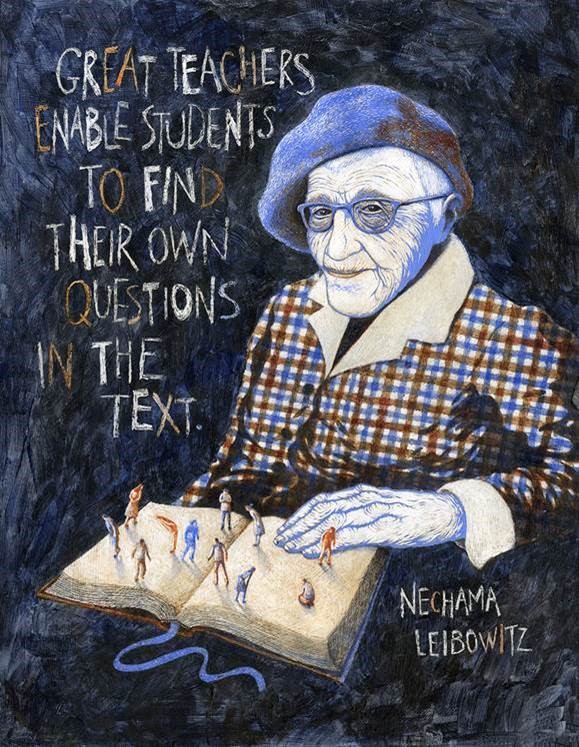Ofra Amit is an Israeli illustrator. She studied at Wizo Canada Institute of Design in Haifa and illustrates for magazines, newspapers, and children’s books. Her work has earned international awards, including IBBY Honor Award, Israel Museum Gold Medal Award, and honors from Communication Arts Illustration Annual, Applied Arts Illustration Annual, and the Bologna Fair Illustrators’ Exhibition.
"While working on Nechama Leibowitz’s poster, I used a technique of scratching the painted surface with an art knife and exposing the layers underneath. This way of working may be parallel to Leibowitz’s way of probing and asking questions, peeling off the upper surface of the text to reveal the deeper layers. By engraving the wrinkles in her face, one by one, I tried to portray her authenticity, her honesty, and how humble she was. At first, the open book in front of her included text, but later on I decided to leave it blank because I thought it would be a better visual expression of Leibowitz’s ongoing search for truth – a search in which she provided space for her students to discover their own truths."




